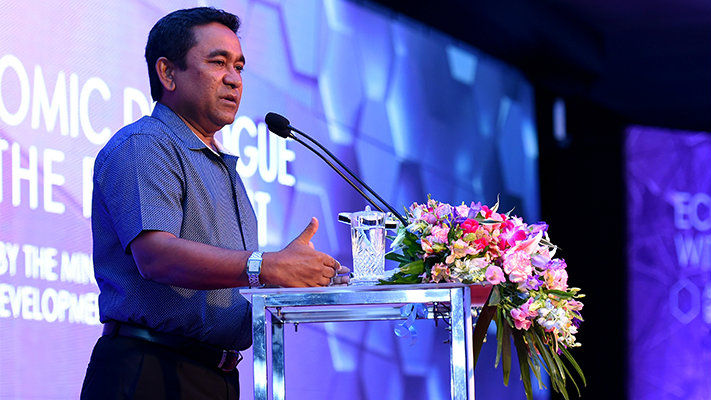Yameen weighs in on civil liberties, terrorism and foreign influence
President Abdulla Yameen has decried what he suggested was double standards by the international community in the handling of emergencies declared earlier this month in the Maldives and France. His rare 90-minute speech weighed in on terrorism, slammed foreign interference and touched on how the Maldives can attract foreign investment.

27 Nov 2015, 09:00
President Abdulla Yameen has decried what he suggested was double standards by the international community in the handling of emergencies declared earlier this month in the Maldives and France.
In a rare 90-minute speech on Wednesday, he complained that “first world countries” that argued against the state of emergency in the Maldives were not concerned over that set in France.
Yameen had restricted civil liberties here citing fear of imminent attacks following an explosion on his speedboat, while France declared an emergency after multiple attacks across Paris killed more than a hundred people.
The unprecedented nationwide state of emergency declared in the Maldives was lifted just after six days instead of 30.
Become a member
Get full access to our archive and personalise your experience.
Already a member?
Discussion
No comments yet. Be the first to share your thoughts!
No comments yet. Be the first to join the conversation!
Join the Conversation
Sign in to share your thoughts under an alias and take part in the discussion. Independent journalism thrives on open, respectful debate — your voice matters.




